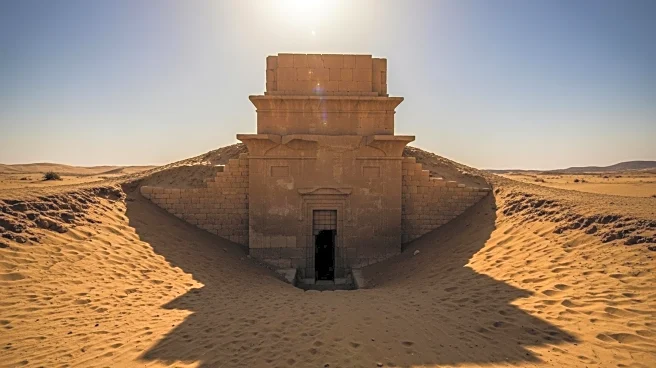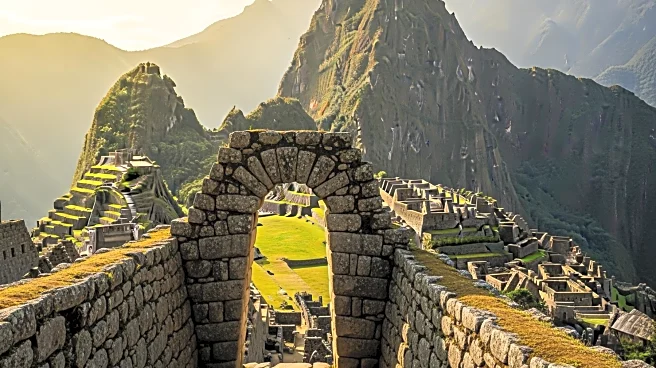What is the story about?
What's Happening?
Archaeologists in Iraq have uncovered 40 ancient tombs at the Mosul Dam reservoir in the Khanke region of Duhok province. The discovery was made possible due to declining water levels in the reservoir, which have been affected by ongoing drought conditions. The tombs are believed to date back over 2,300 years to the Hellenistic or Hellenistic-Seleucid period. Bekas Brefkany, the director of antiquities in Duhok, is leading the excavation efforts. The team plans to transfer the tombs to the Duhok Museum for further study and preservation before the area is potentially submerged again.
Why It's Important?
The discovery of these ancient tombs provides valuable insights into the historical and cultural heritage of Iraq, a region rich in archaeological significance. The drought conditions that facilitated this find highlight the severe environmental challenges facing Iraq, including chronic water shortages and rising temperatures. These conditions have broader implications for agriculture, electricity, and the overall economy. The situation underscores the need for effective water management and climate adaptation strategies in Iraq, as well as the impact of upstream dams in neighboring countries on Iraq's water resources.
What's Next?
The archaeological team will continue to excavate the site and work on preserving the tombs. There is a possibility that the area may be submerged again, which adds urgency to the preservation efforts. The ongoing drought conditions may lead to further archaeological discoveries as water levels continue to fluctuate. Additionally, Iraq's government may need to address the environmental and resource management challenges posed by the drought and upstream dam constructions.
















